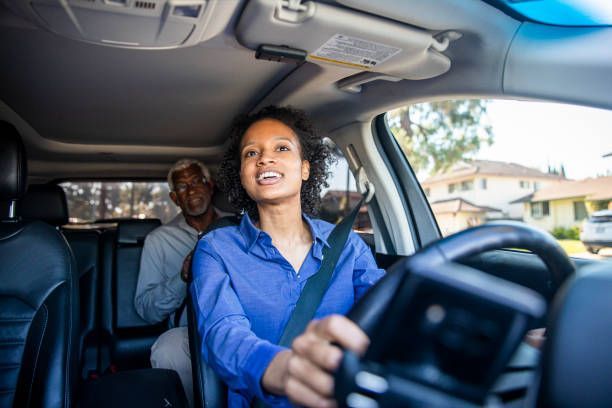Rideshare, Delivery Services and More - Oh My!!!
As we see an increase in ridesharing services such as Uber and Lyft and various delivery services such as Door Dash, Insta-Cart, Grubhub, Uber Eats and so on, insurance concerns also seem to grow.

I have seen a trend in the clinic over the past few years of individuals who have either worked as a driver for the above-named companies or have been passengers in a rideshare vehicle and been injured in an accident event. Unfortunately, a good percentage of these injured individuals do not have the proper insurance coverages in place while engaging in commercial activities under a personal insurance policy. Or, they are passengers in a vehicle where the driver has not turned on the rideshare service in his or her application and have engaged in business “under-the-table”. Either way, this leaves injured victims without the proper insurance coverage, which is not a good situation to be in. Let’s present a few scenarios to help illustrate what we see in the clinic.
Scenario #1 – The driver for a rideshare service does not report that they are providing these rideshare services to the company that provides their own individual auto insurance policy and therefore does not have an endorsement / coverage while providing these services. This translates to zero insurance coverage while operating in any rideshare capacity. So, inevitably this individual is rear ended while at a complete stop at a traffic light. Thankfully the driver does not have a fare in the vehicle but is on the way to pick up a fare via an application on the cell phone. The person that hit him does not have an active policy at the time of the accident. The rideshare driver reports the accident to their insurance company and after a brief discussion of the occurrence, it is determined that no coverage was in place during the accident event due to not reporting rideshare activities and securing the proper coverage before the incident took place. In this scenario, the driver of the rideshare vehicle is not covered by their own insurance policy. And, being the driver that was at-fault for the accident does not have insurance there is no coverage for property damage or injuries to the operator. This is a major lose – lose situation.
Scenario #2 – The driver of a rideshare service does not disclose to their own insurance company that they engage in rideshare services as in scenario #1. Also, this driver decides to provide rideshare services “under-the-table” by not turning on the service through the phone application. This driver picks up a fare and the two parties agree to pay cash for the service and not report the fare to the rideshare company. As in scenario #1 they are impacted by a driver without proper coverage or no coverage. This leaves the driver of the rideshare and the passenger in the rideshare vehicle without any insurance coverage. The rideshare driver will not have property or injury benefits extended to them by their own insurance and the rideshare company cannot extend coverage to the passenger due to “under-the-table” activities without turning on the fare in the application. Now, both injured parties are without insurance coverage for property and injuries, if sustained. This may also expose the rideshare driver legally due to having a passenger in the vehicle who was injured. Not a good place to be in.
There are many other potential scenarios. Let’s say the rideshare driver is at fault for the accident, then what? Are they going to be personally liable for any damages to all involved property, vehicles and persons resulting from the event? What if there is a single vehicle incident as in a hydroplaning event, animal strike or mechanical failure? What if there is a criminal component to the accident event, as seen with grand theft auto or DUI incidents? Then what? There are many more scenarios that I have not mentioned but I am sure your imagination will allow you to think of a few.
Below is a link that is thorough concerning insurance coverages and scenarios involving rideshare and delivery services. This is not an endorsement to / for any company or product but simply another good article / source of information to help illustrate my points.
https://www.progressive.com/answers/how-rideshare-insurance-works/
My recommendation to any individual thinking of engaging in any type of ridesharing or delivery service is to first call your own insurance company and make 100% certain you have the proper coverages in place BEFORE you start providing these services. Also, I would strongly recommend against any “under-the-table” service activities. Always follow the rules and regulations of the company you are providing services for and always turn on the application when providing these services. Most people are not in any position to start writing checks for large hospital bills and purchasing new vehicles. Nor are they going to want their personal assets exposed to any potential legal proceeding.
Dr. Adam Zeccardi DC, FIAMA
